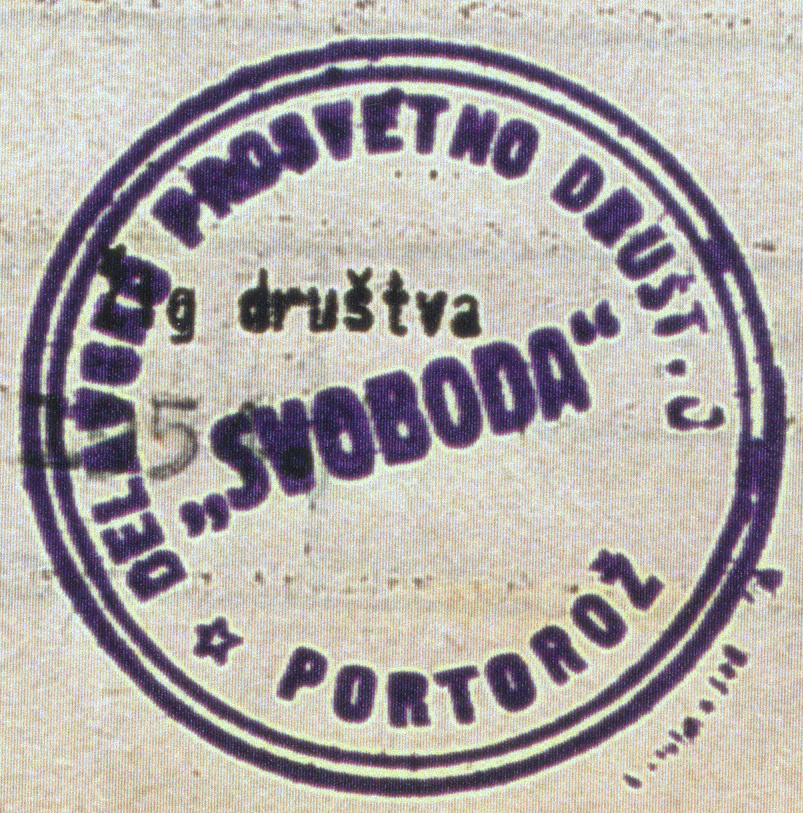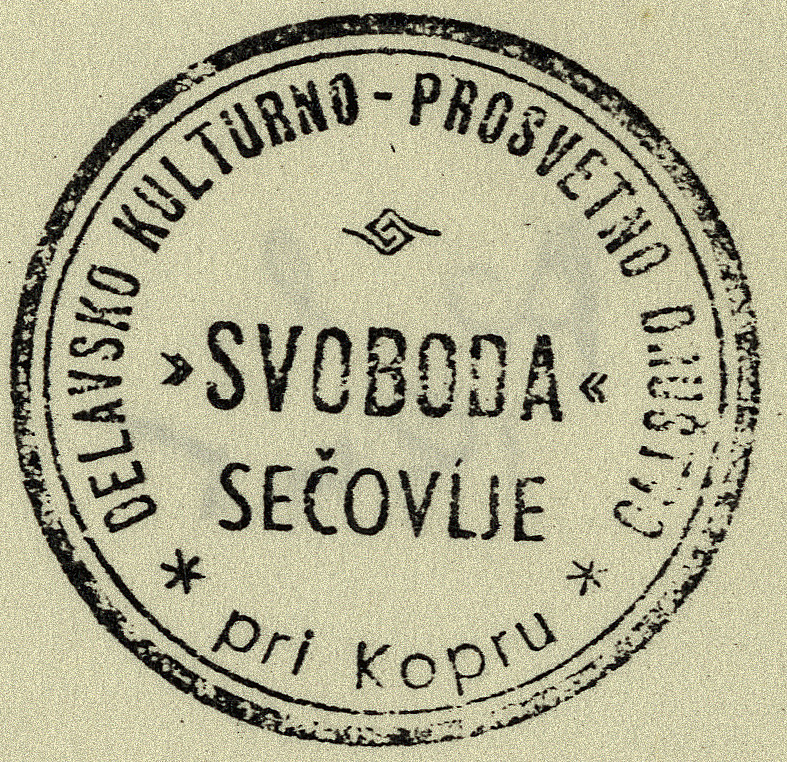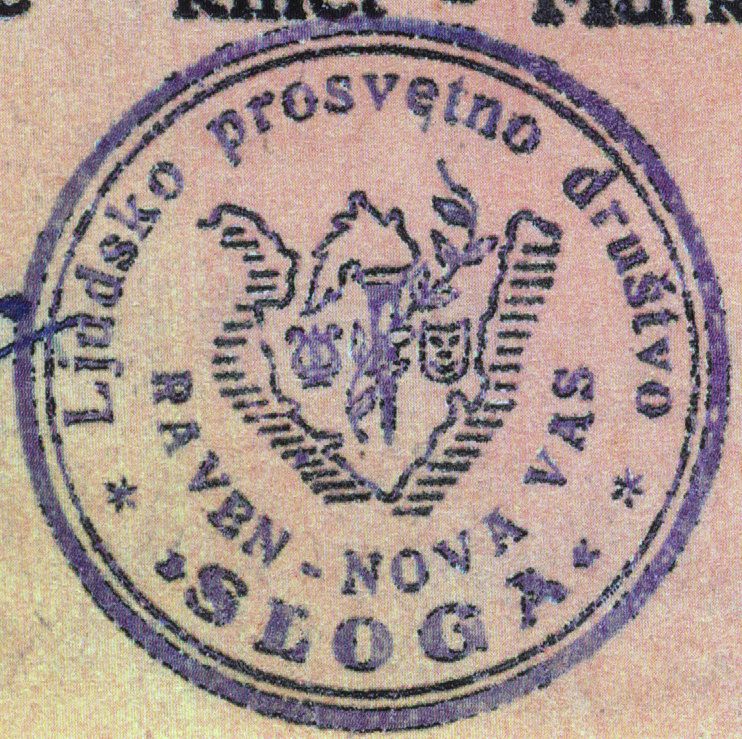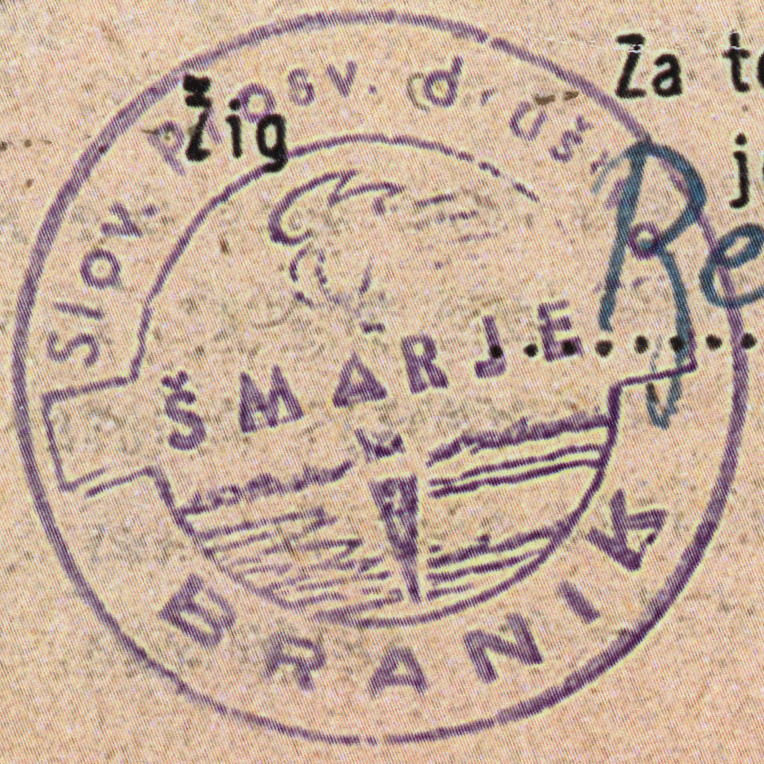Like schools, cultural societies (known by the abbreviation “PD”, for prosvetno društvo) that had been abolished under Fascism also began to revive after the war. New societies were also formed, since the position of the authorities was that culture should be present in every home. They were most active in the period 1947–1955, when with the construction of “houses of the cooperative” (cooperative buildings) and, later, “houses of culture” (cultural centres), they also gained new premises for their activities. The most widespread forms of cultural activity were choirs and choral societies, drama groups and bands. In most cases, the prime movers in these cultural societies were teachers, who founded and ran them and also performed with them.
Cultural activities in towns operated at a higher level. In 1951 a semi-professional theatre was founded in Koper, although it only operated for three seasons. During this time it also worked with amateur groups in villages.
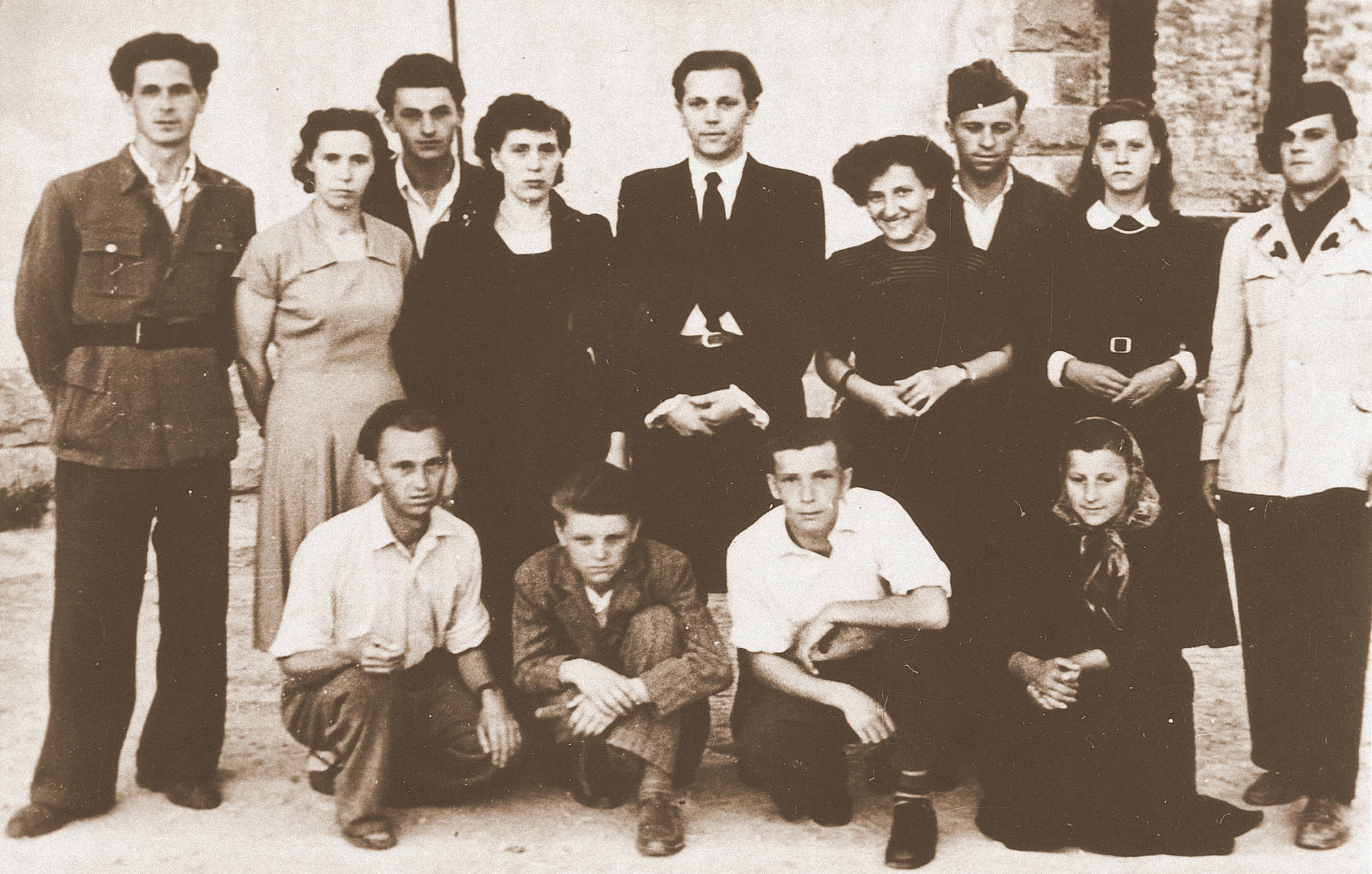 Members of PD Frenk, from Boršt, in 1953.
Members of PD Frenk, from Boršt, in 1953.
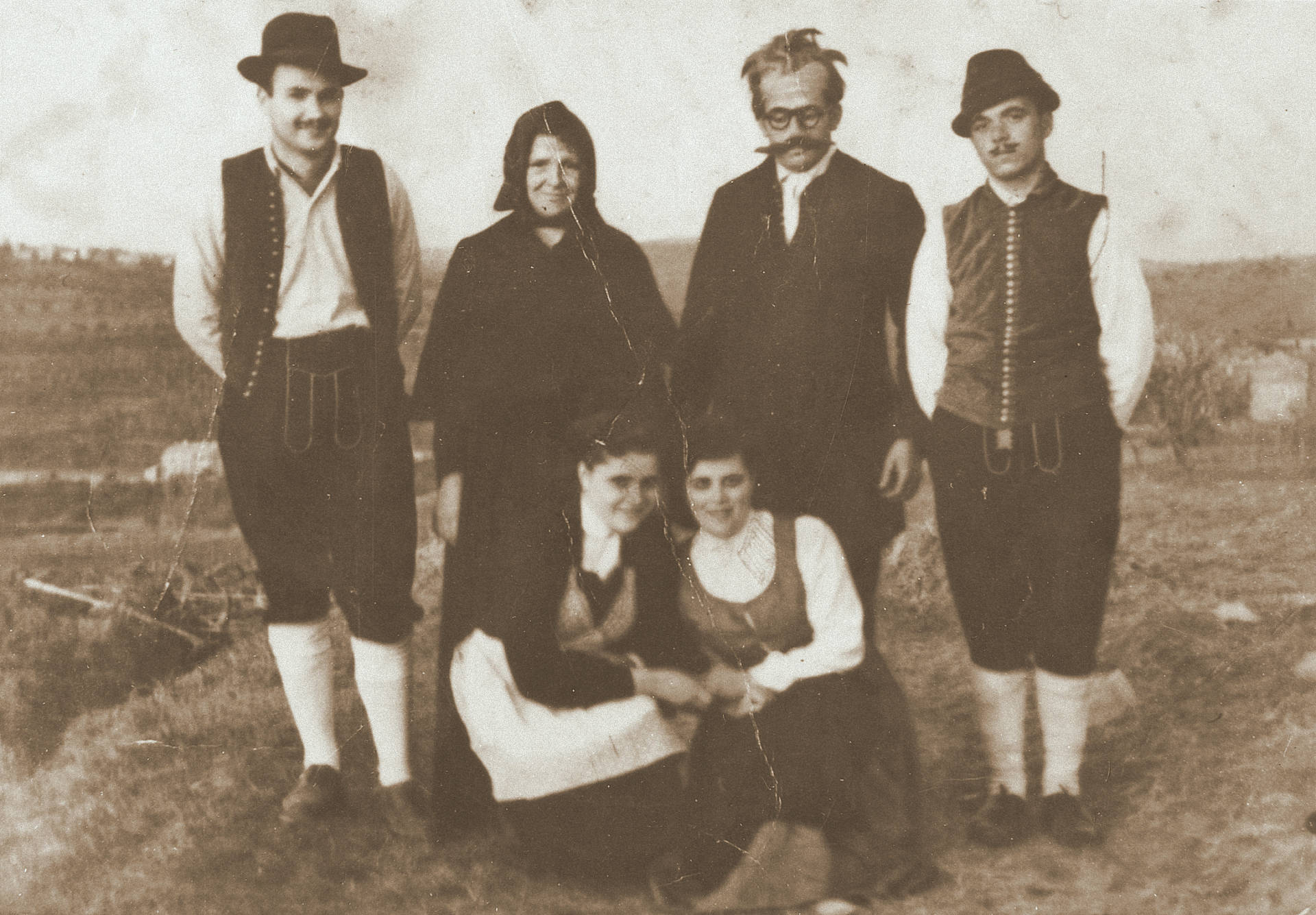 The drama group of PD Ivan Cankar, from Krkavče, in 1953.
The drama group of PD Ivan Cankar, from Krkavče, in 1953.
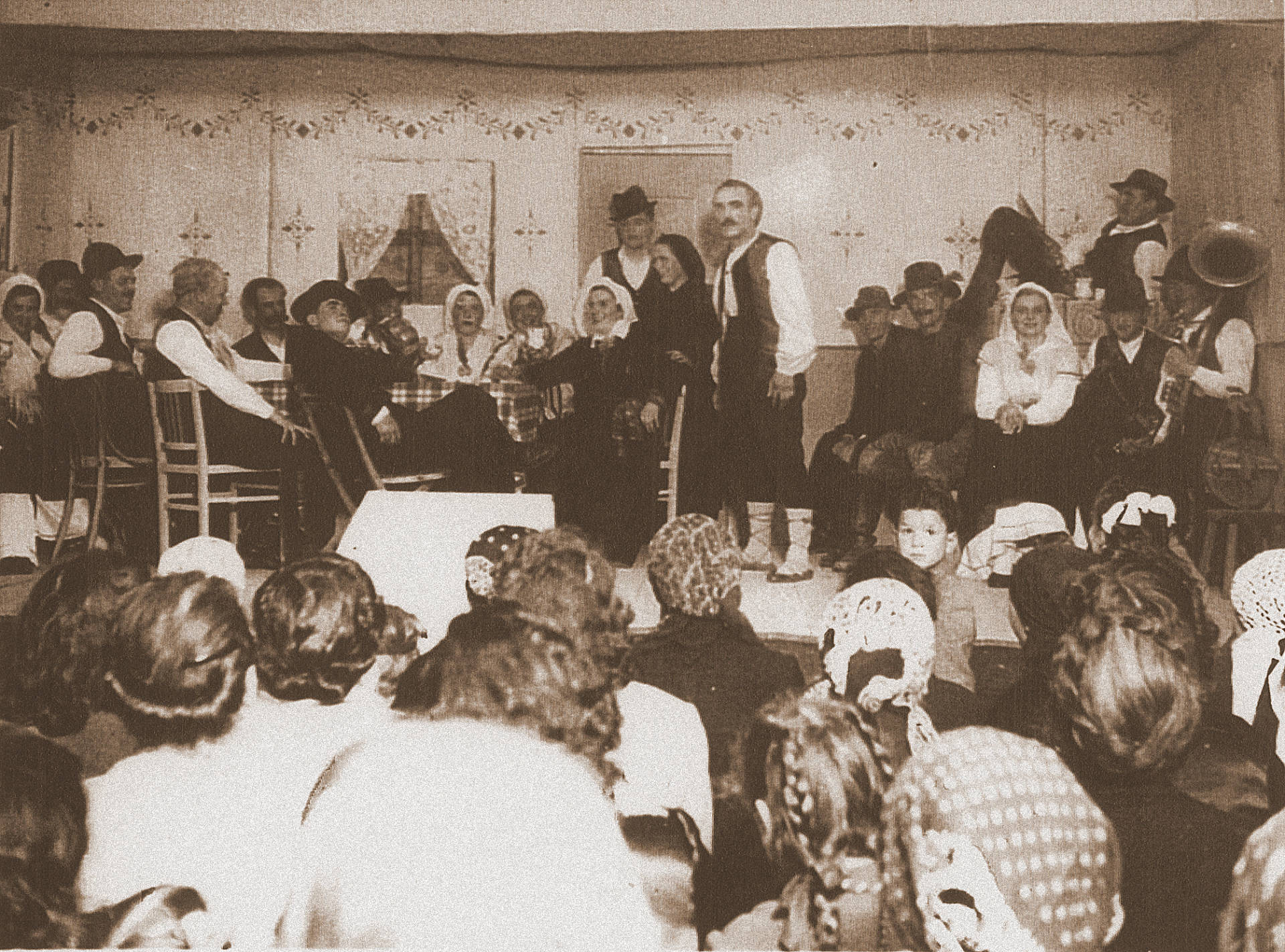 Theatrical performance in Plavje.
Theatrical performance in Plavje.
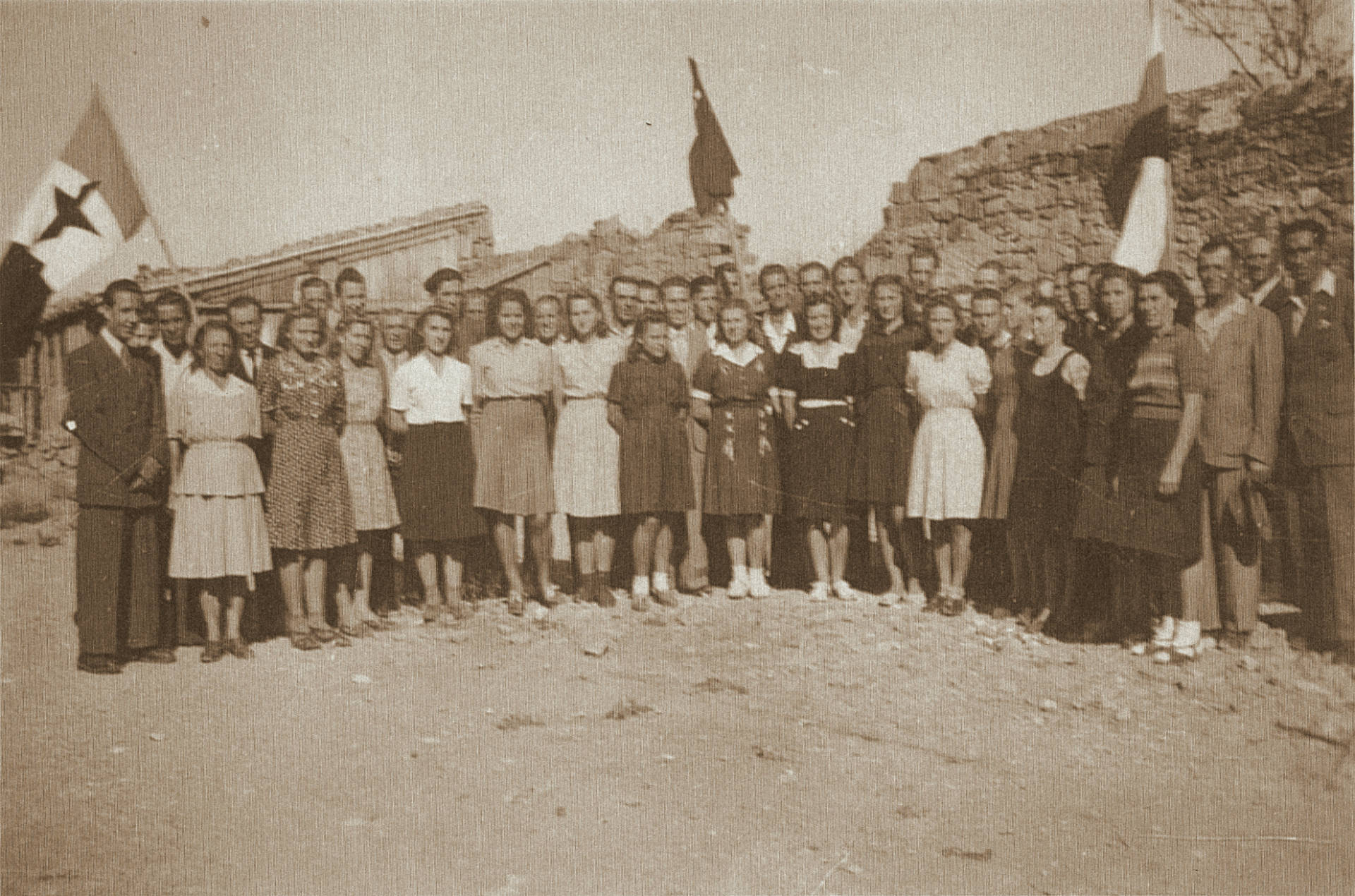 Škofije, 1948 – performance by the choir of PD Istrski Grmič.
Škofije, 1948 – performance by the choir of PD Istrski Grmič.
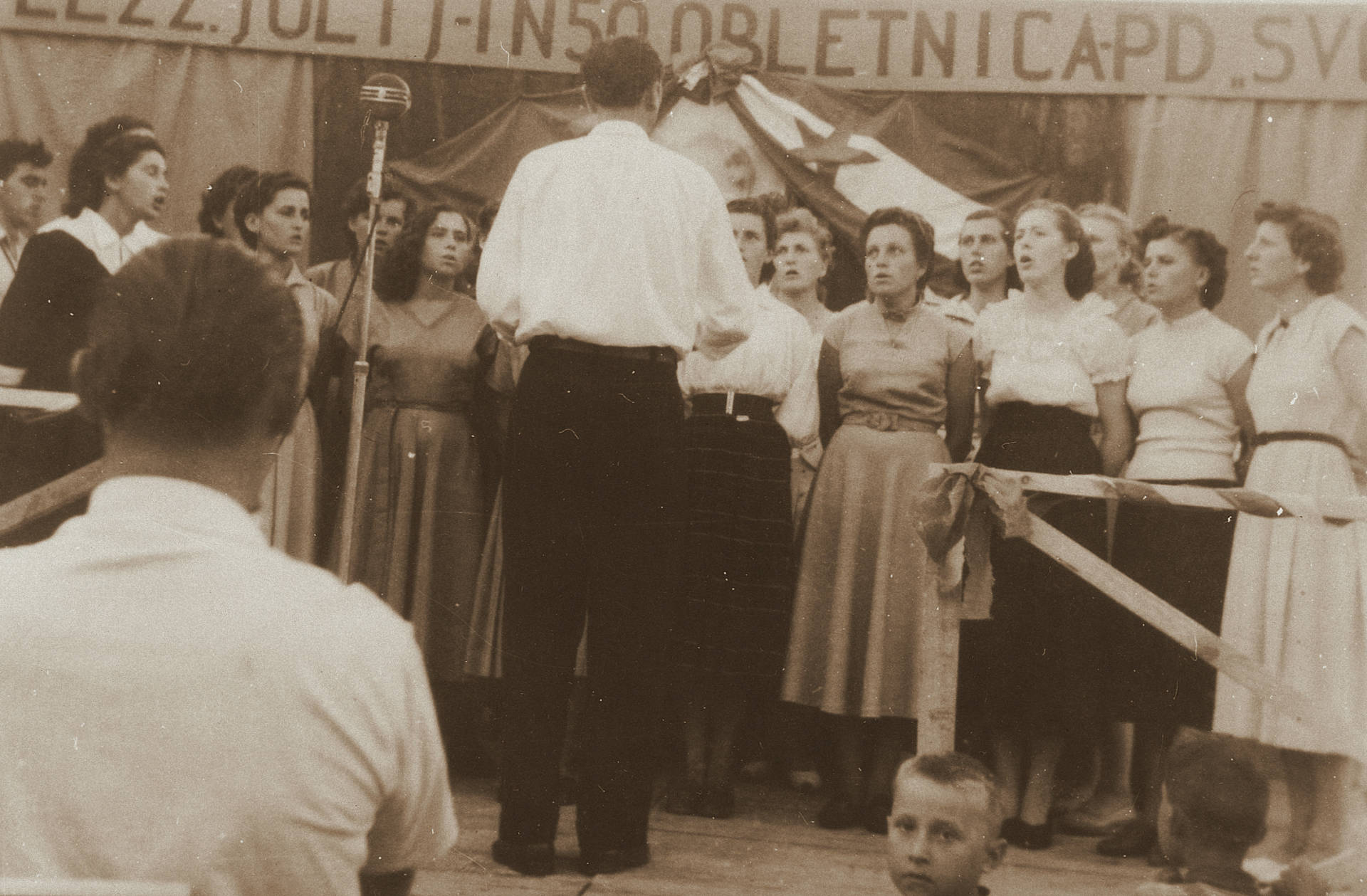 Sveti Anton, 1954 – the choir of PD Svoboda at the celebration of the society’s 50th anniversary.
Sveti Anton, 1954 – the choir of PD Svoboda at the celebration of the society’s 50th anniversary.
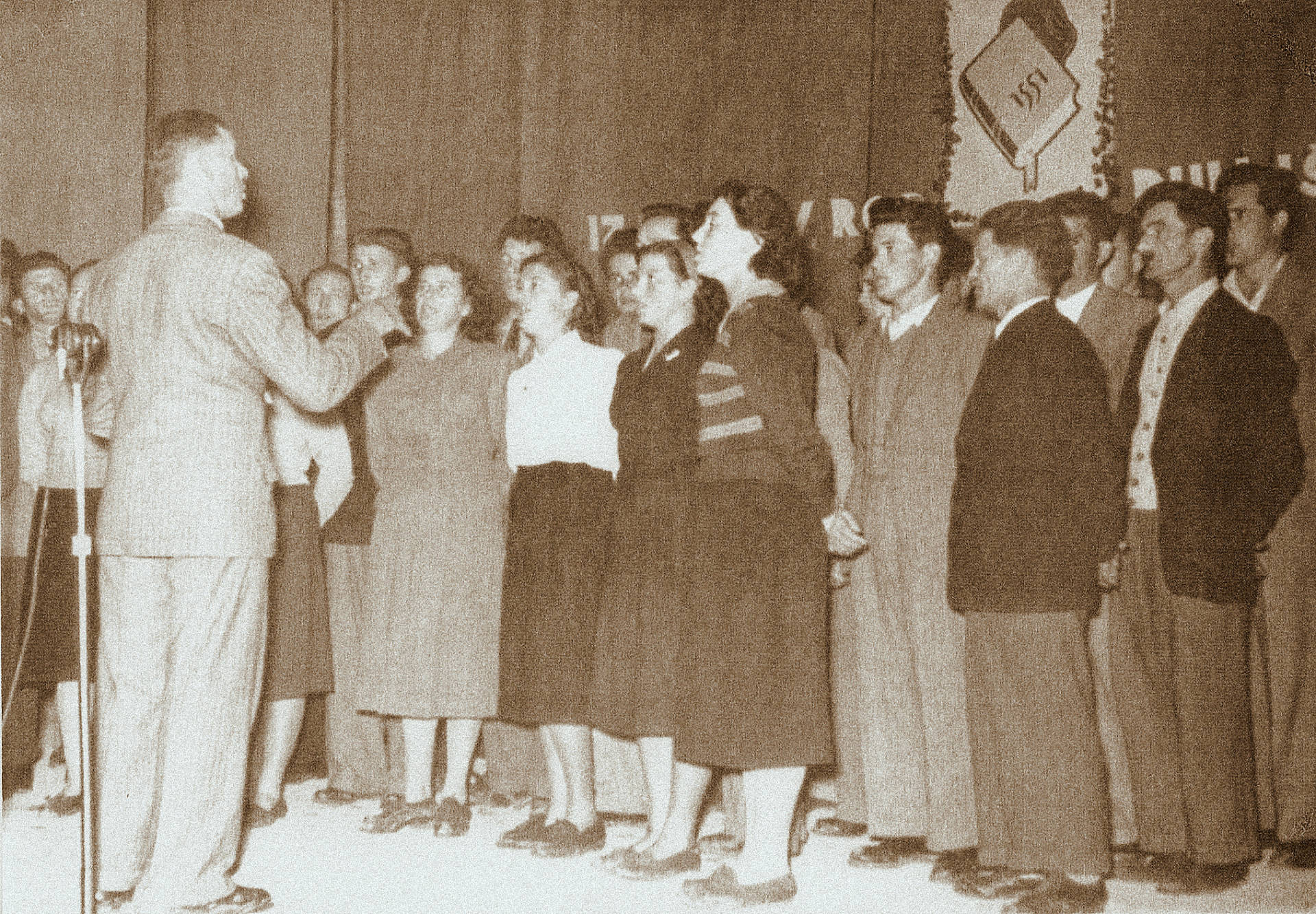 The choir of PD Branik, from Šmarje, performing at the theatre in Koper in 1951.
The choir of PD Branik, from Šmarje, performing at the theatre in Koper in 1951.
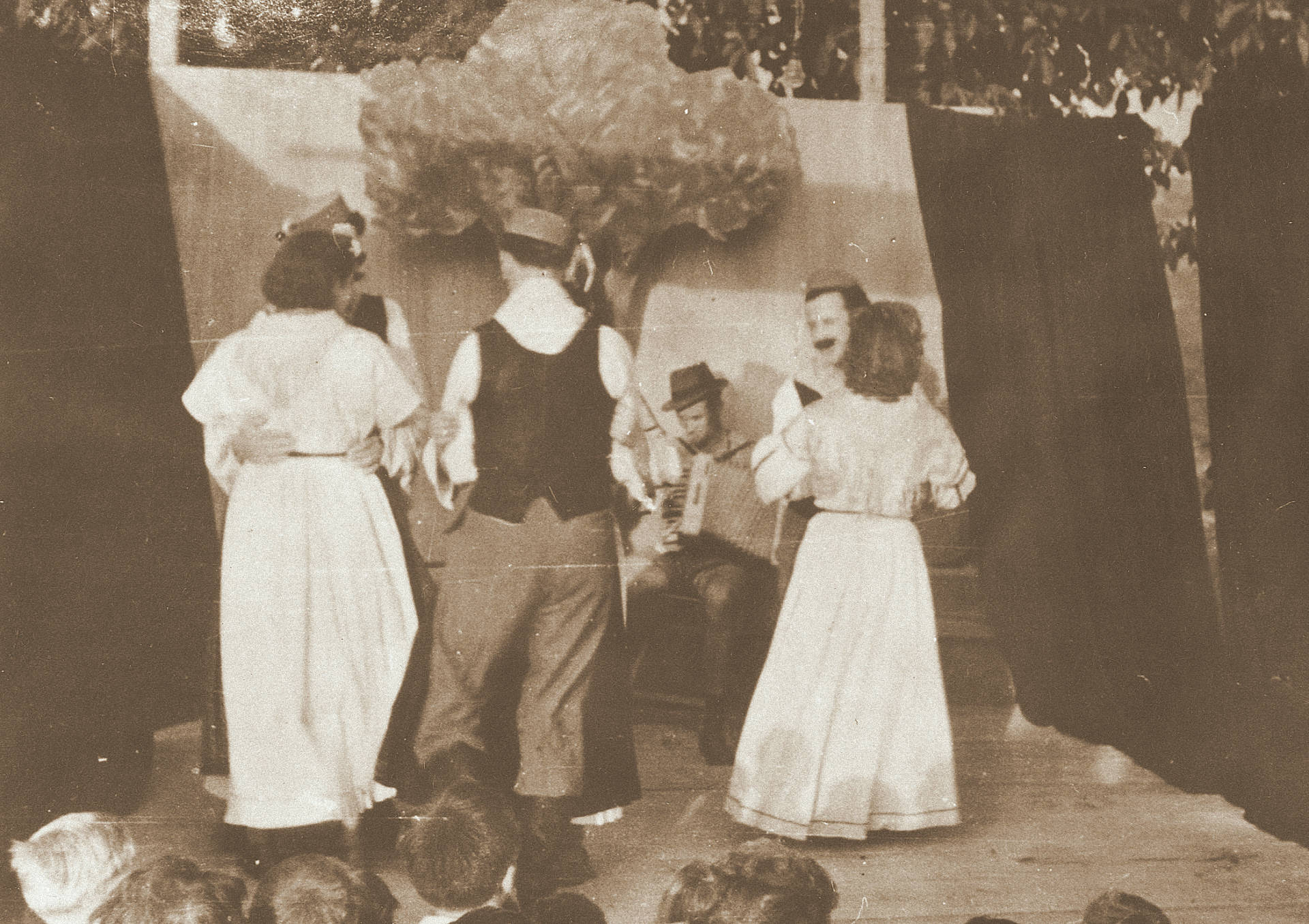 Sveti Peter, 29 June 1952 – the folklore group of the local PD France Bevk.
Sveti Peter, 29 June 1952 – the folklore group of the local PD France Bevk.
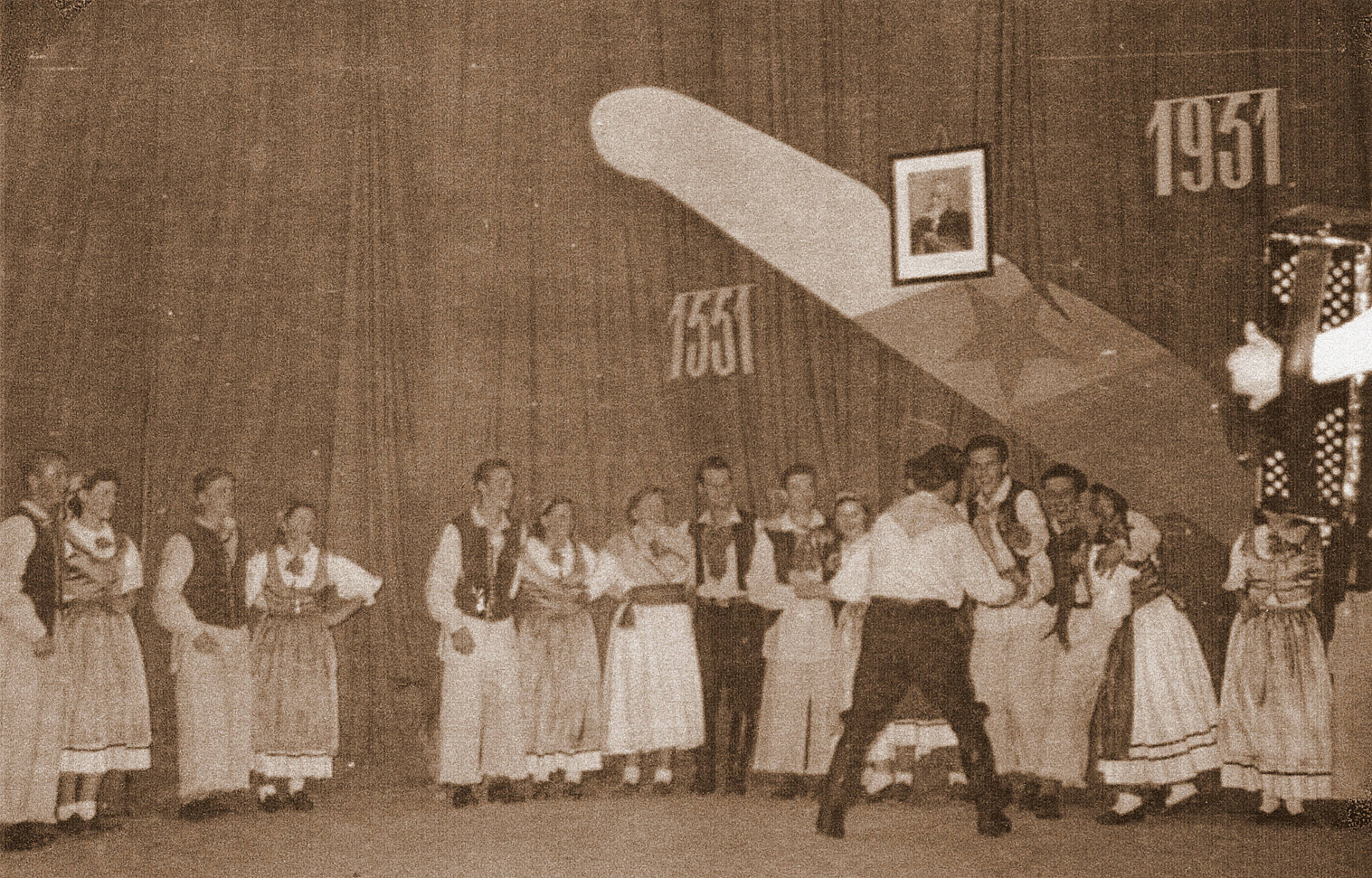 The folklore group of PD Branik, from Šmarje, performing at the theatre in Koper in 1951.
The folklore group of PD Branik, from Šmarje, performing at the theatre in Koper in 1951.
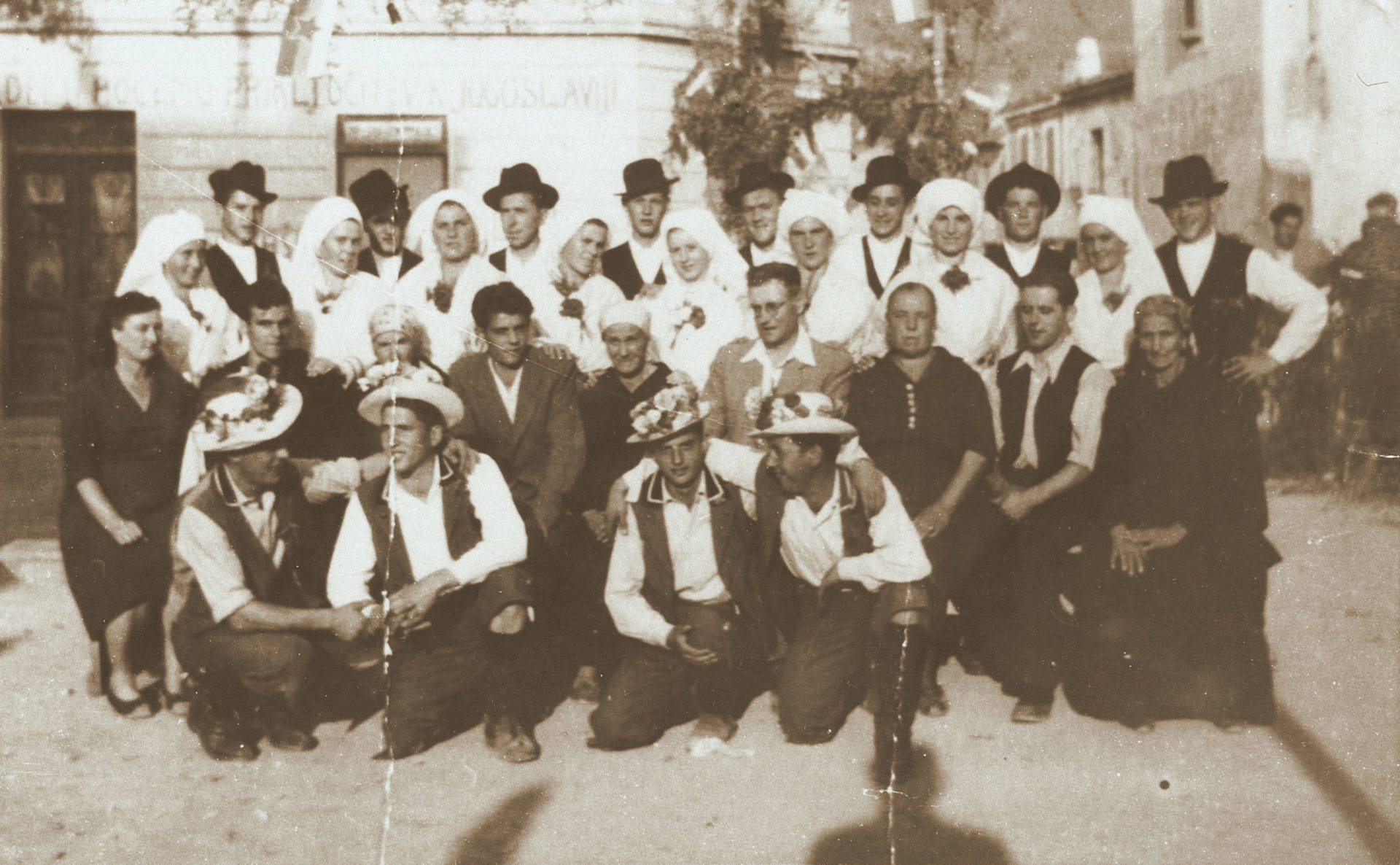 Dekani, 1952 – parish fair with traditional dancing.
Dekani, 1952 – parish fair with traditional dancing.
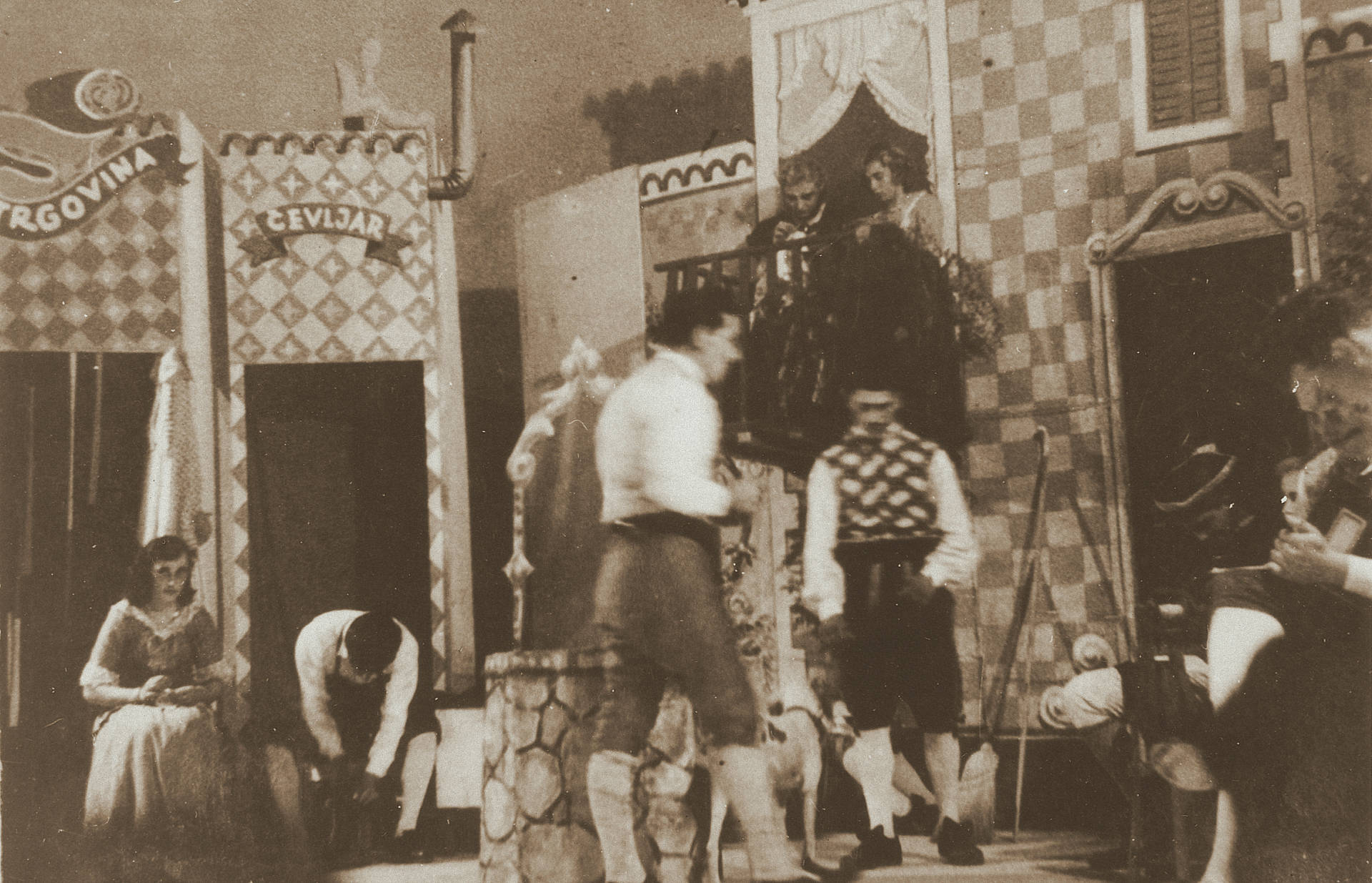 Sveti Anton, 1953 – the drama group of PD Svoboda performing Goldoni’s comedy The Fan.
Sveti Anton, 1953 – the drama group of PD Svoboda performing Goldoni’s comedy The Fan.
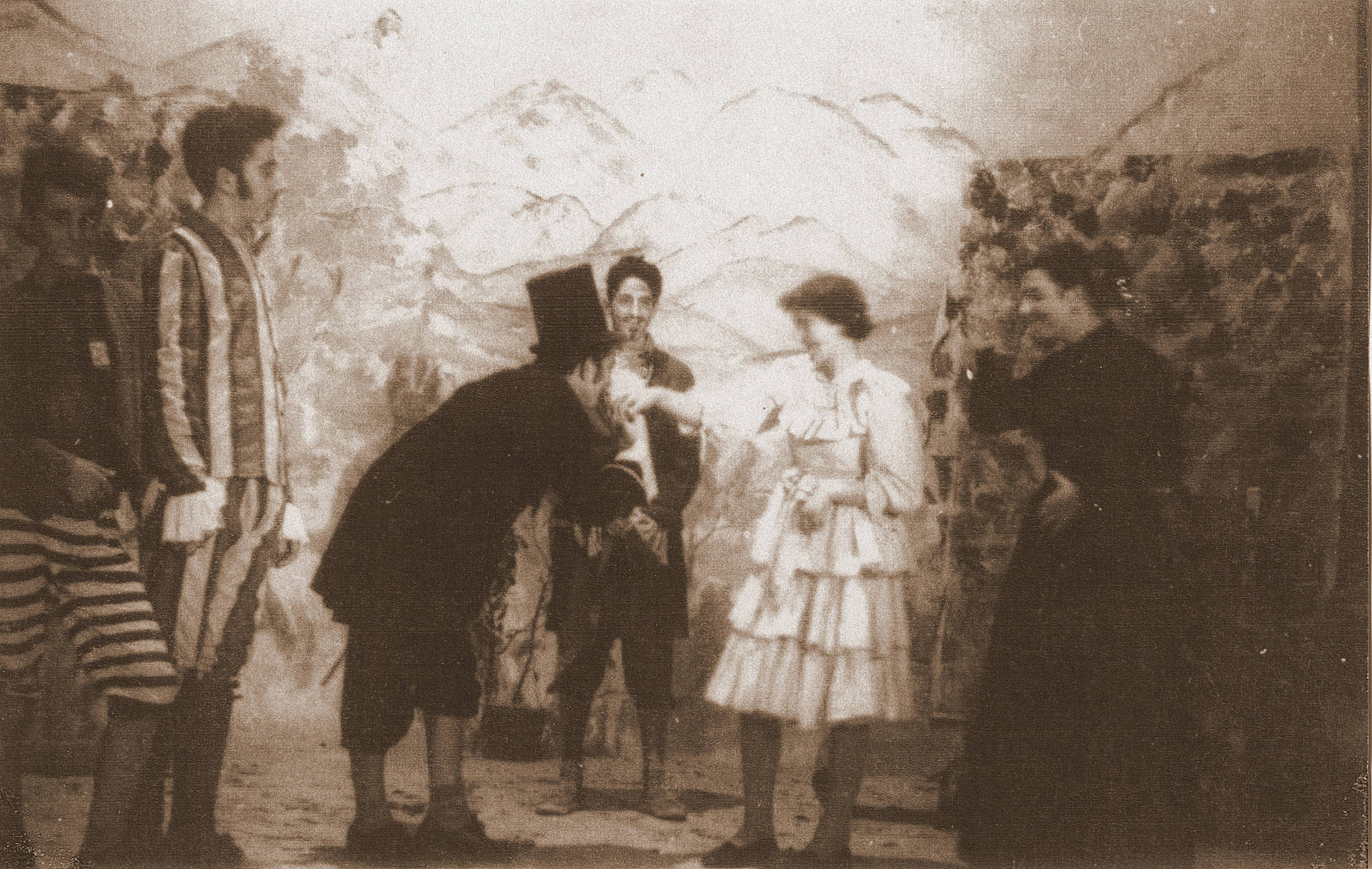 The drama group of PD Branik, from Šmarje.
The drama group of PD Branik, from Šmarje.
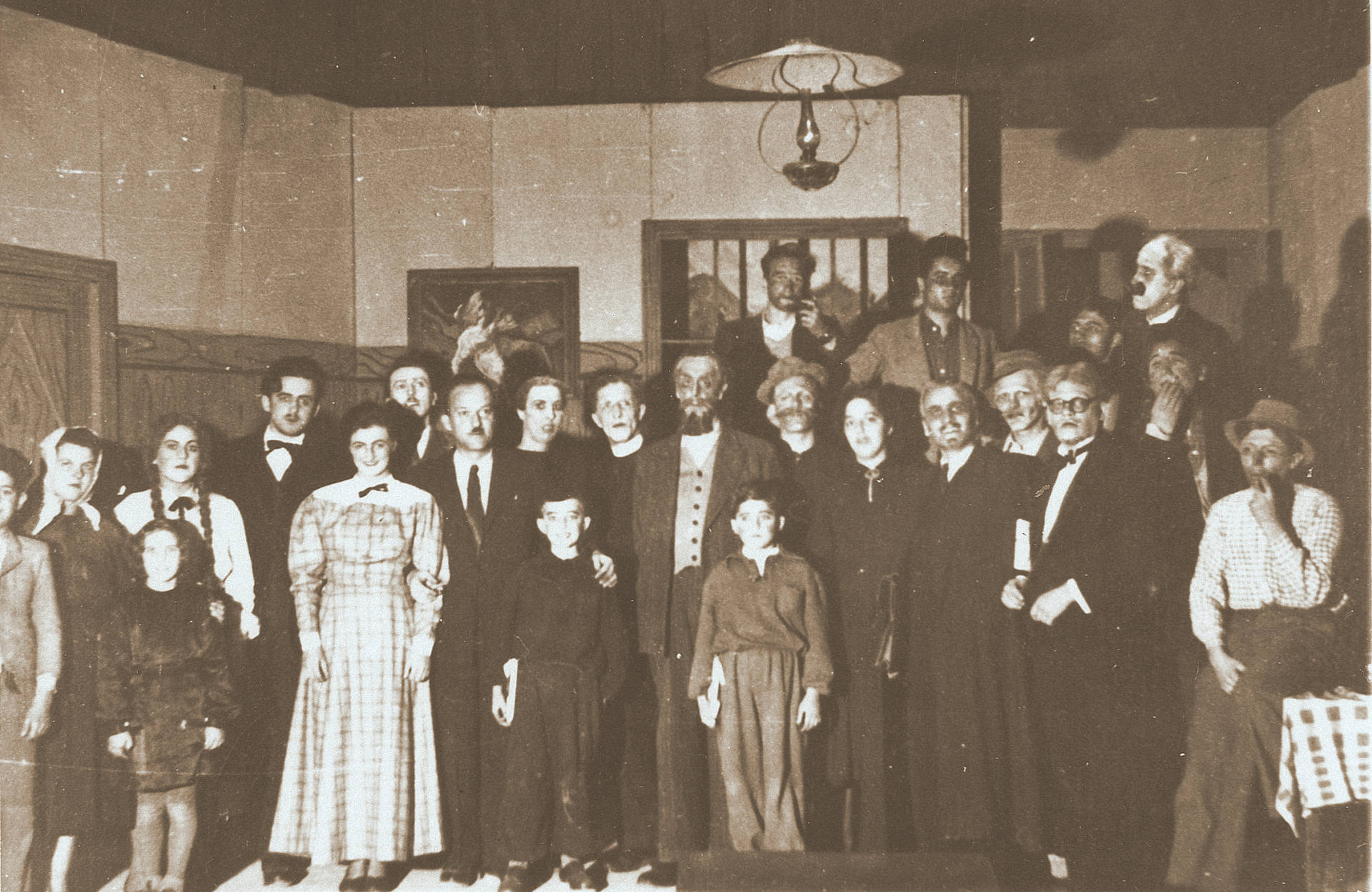 The ensemble of Koper’s People’s Theatre (Ljudsko gledališče) in a performance of Cankar’s drama The King of Betajnova.
The ensemble of Koper’s People’s Theatre (Ljudsko gledališče) in a performance of Cankar’s drama The King of Betajnova.
